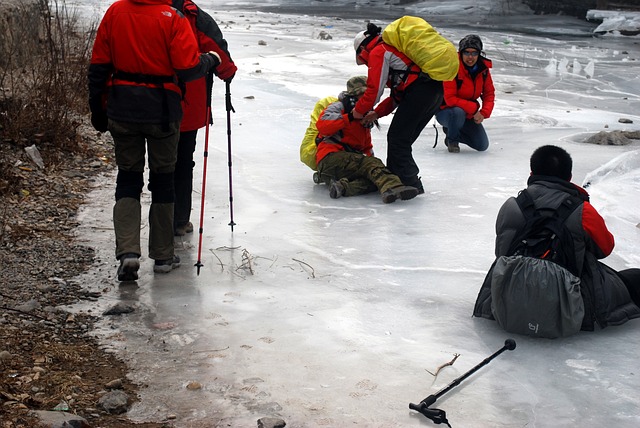People often think of slip-and-fall accidents as simple mistakes, but they can have big legal repercussions that need careful thought. Picture yourself enjoying the fresh air as you walk through a quiet park. Suddenly, you lose your balance and start flailing around like a cartoon character. It might be funny right now, but what’s going to happen next could be bad.
People who slip or trip and get hurt should know what the legal consequences are. The same goes for property owners or businesses that want to keep their grounds safe. Let’s look at these events and learn what you need to know to handle them!
Types of Slip or Trip Injuries
Anyone can get wounded if they slip or trip. A damp floor or uncleaned route might cause a trip and fall, causing injury.
These collisions can cause bruises, shattered bones, and brain trauma. Slipping or tripping might cause these problems:
Slips
A slip hazard solutions occurs when there is not enough traction between a person’s foot and the surface they are walking on. This can happen due to spilled liquids, snow/ice-covered surfaces, or loose rugs.
Trips
Tripping happens when one’s foot hits an unexpected object or uneven surface, causing them to lose balance and fall. Examples include cracked sidewalks, exposed tree roots, or misplaced objects.
Stumbles
A stumble is similar to a trip but often involves regaining balance before falling completely. This can happen when walking on uneven terrain or navigating through cluttered areas.
The Legal Perspective
While slip or trip injuries may seem minor, they can have significant legal implications for both parties. The injured party often seeks compensation for medical bills, lost wages, and pain and suffering. Property owners or businesses may face liability if their negligence contributed to the accident.
These injuries prevent falls under premises liability, which holds property owners accountable for maintaining a safe environment for visitors. Responsibility varies based on visitor type (invitee, licensee, or trespasser) and property type (residential, commercial, or government-owned).
To avoid legal issues, property owners must take reasonable steps to prevent hazards, including regular maintenance, clear warning signs, and adequate lighting in dark areas.
Seeking Legal Assistance
If you’ve been involved in a slip or trip injury, it’s crucial to seek legal assistance right away. A personal injury lawyer can help you navigate the legal process and protect your rights. They can gather evidence, negotiate with insurance companies, and represent you in court if needed.
For property owners or businesses, seeking legal advice is just as important when facing slip or trip injuries. A lawyer can help assess liability and guide you on handling a potential lawsuit.
Having the right support is crucial in the aftermath of a slip or trip incident. Engaging a top legal team for slip and fall claims can significantly strengthen your case and ensure that all necessary steps are taken to secure the compensation you deserve.
Staying Safe: Preventing Slip or Trip Incidents and Their Legal Impact
People who slip or trip and get hurt need to know what the legal consequences are. This is true for both people and property owners.
We can lower the chance of crashes and the legal problems that come after them by putting safety first and being aware of possible dangers. Taking precautions not only makes the world safer, but it also protects you from legal problems that could come up because of these events.
Does this article help you? Explore our website to find more helpful and fun stories that could help you.
